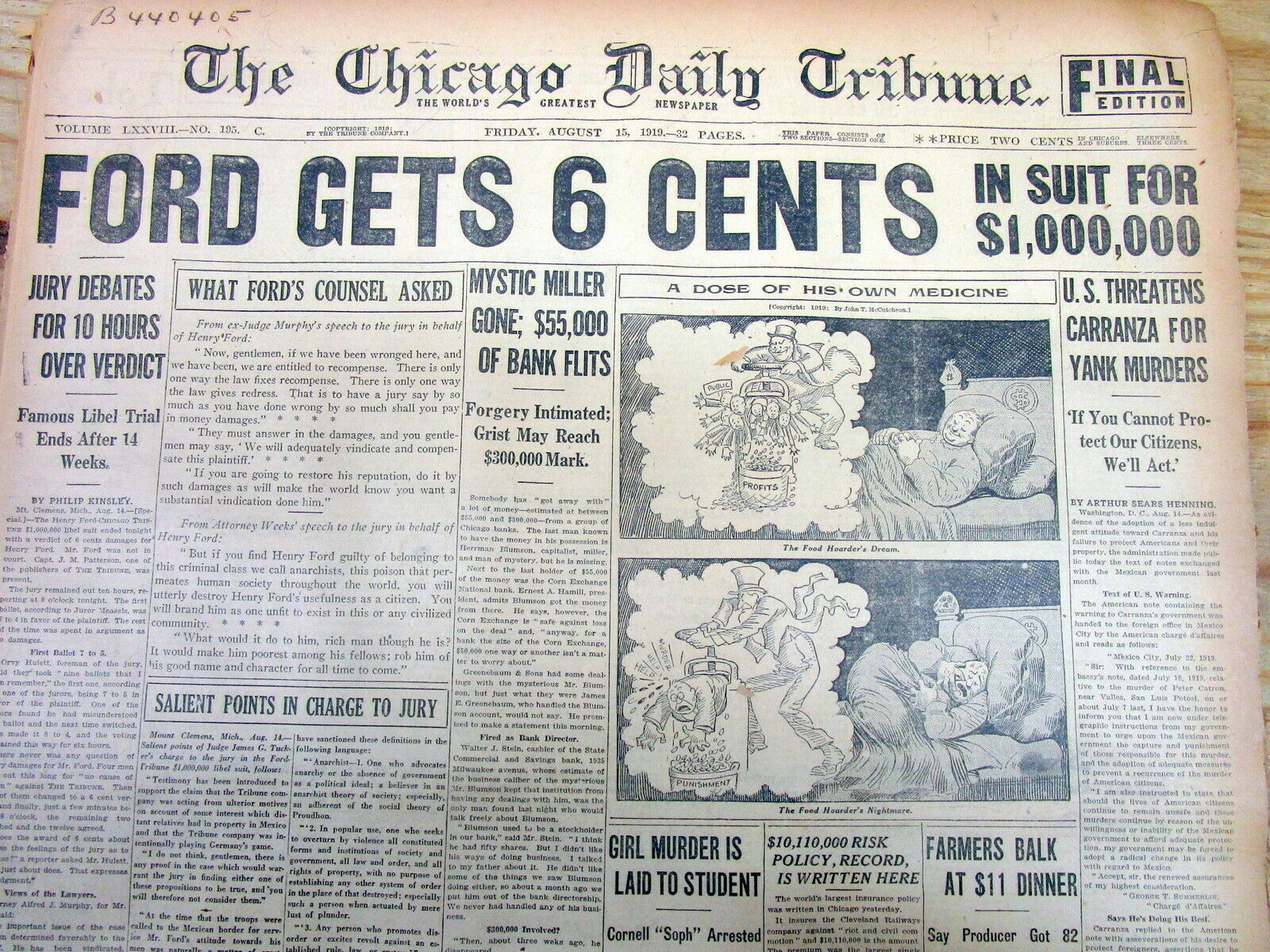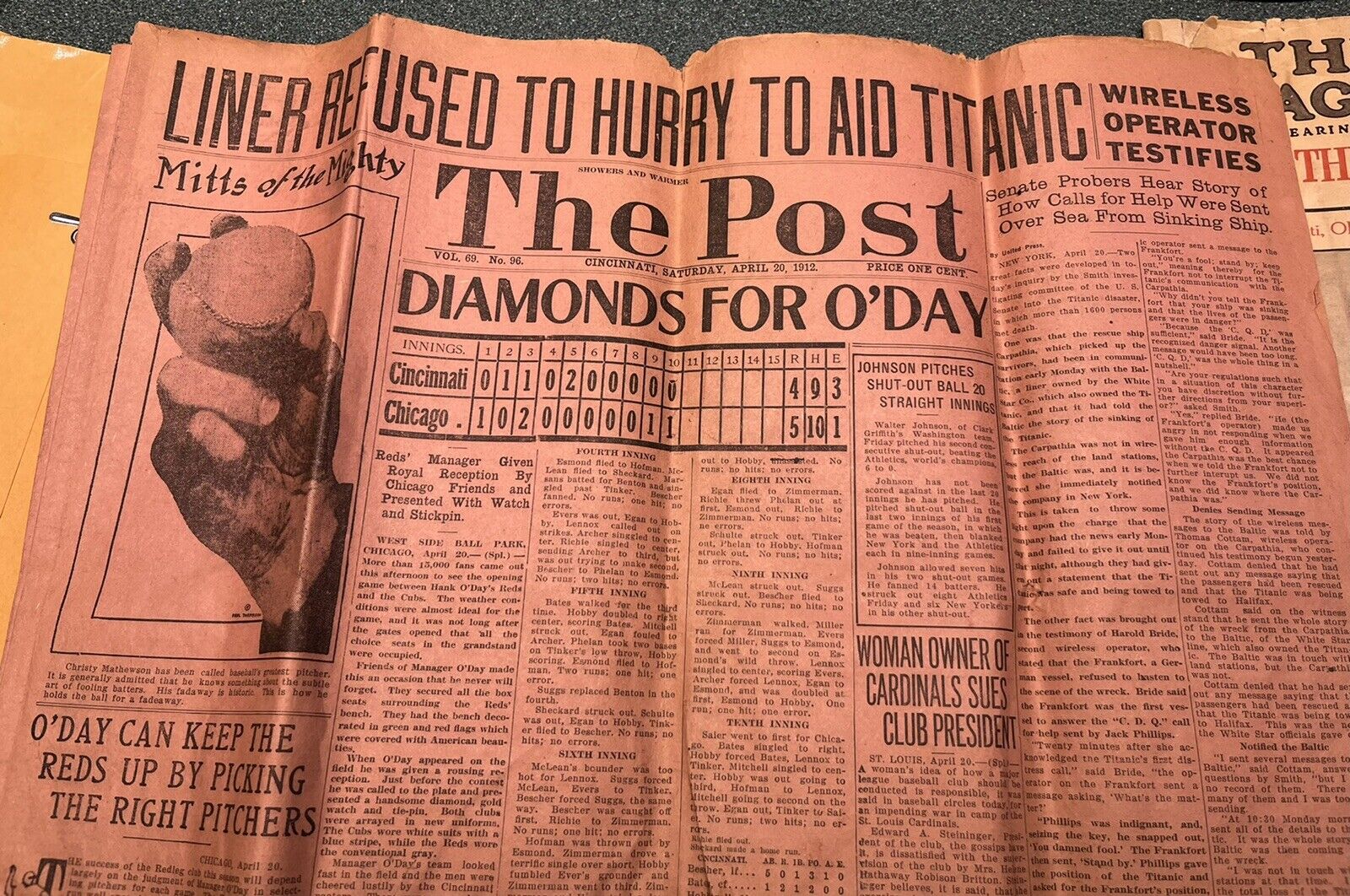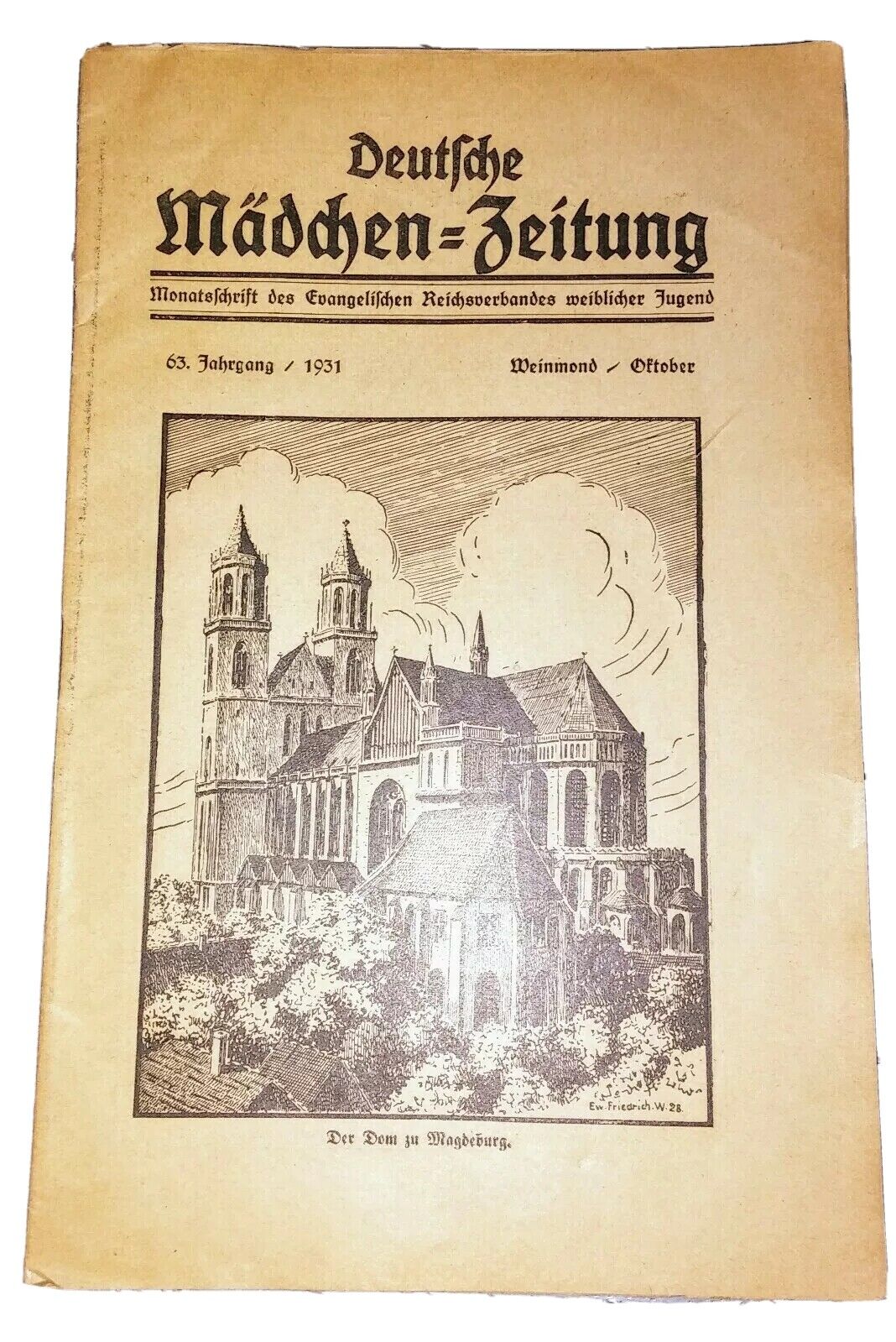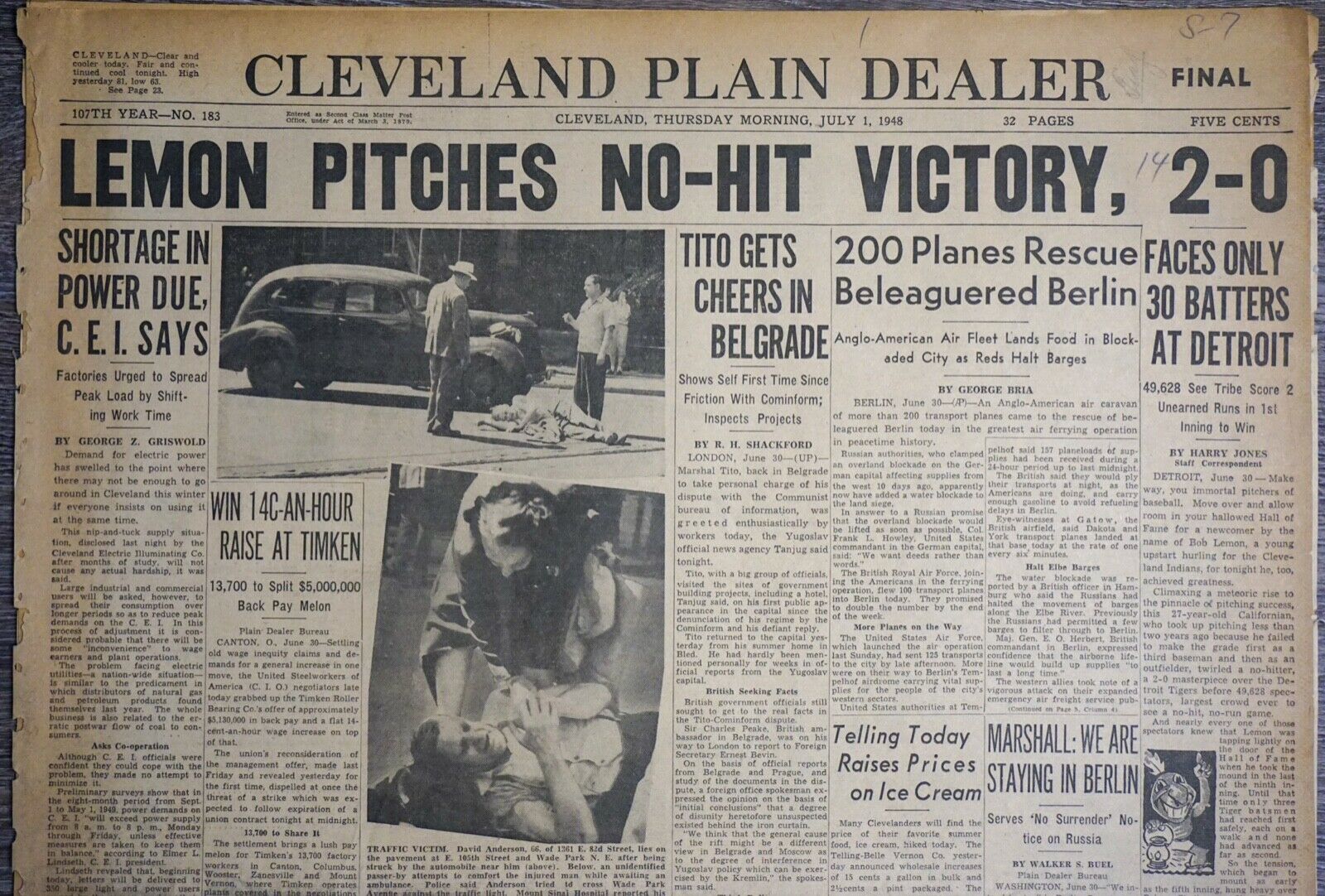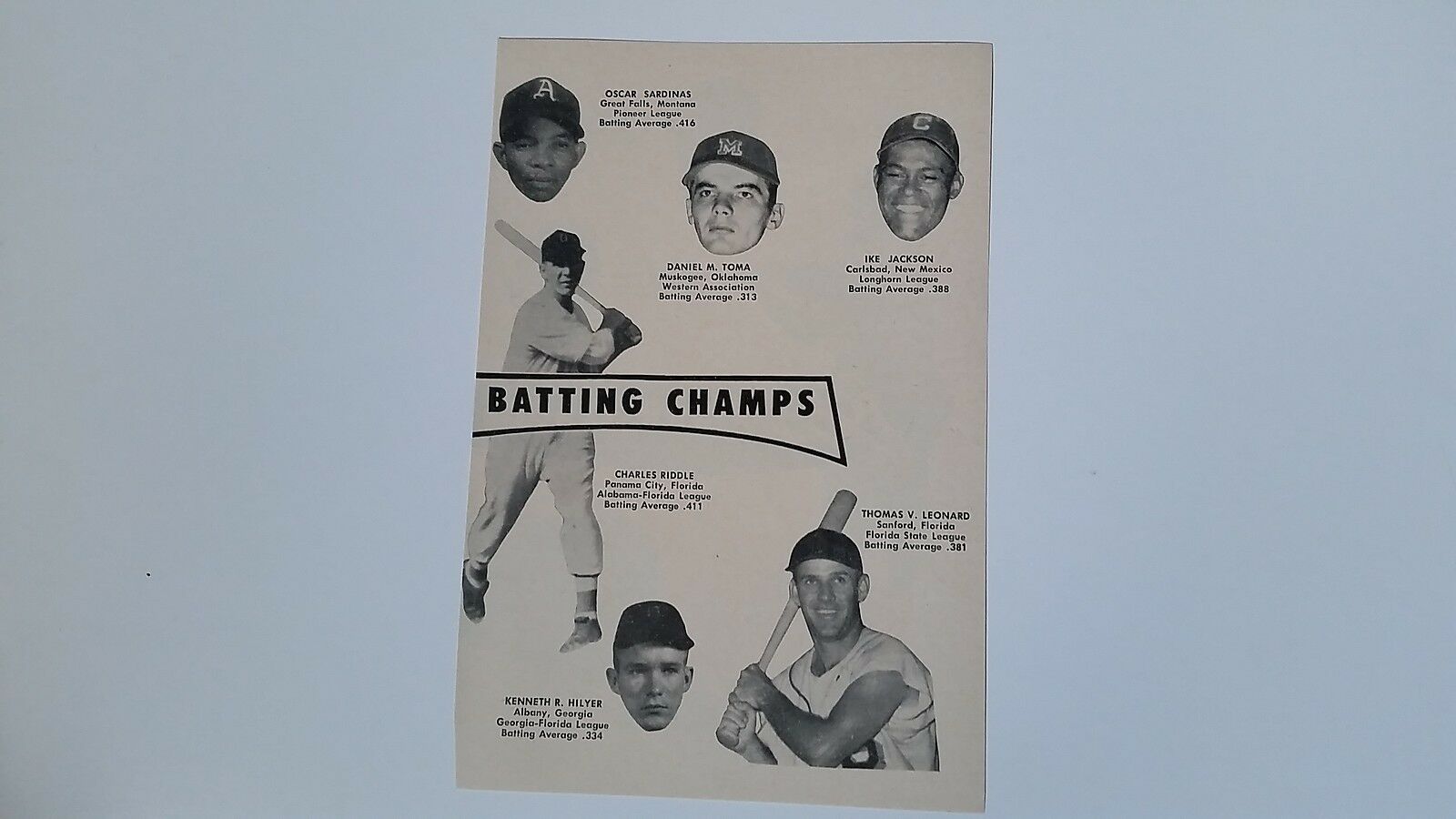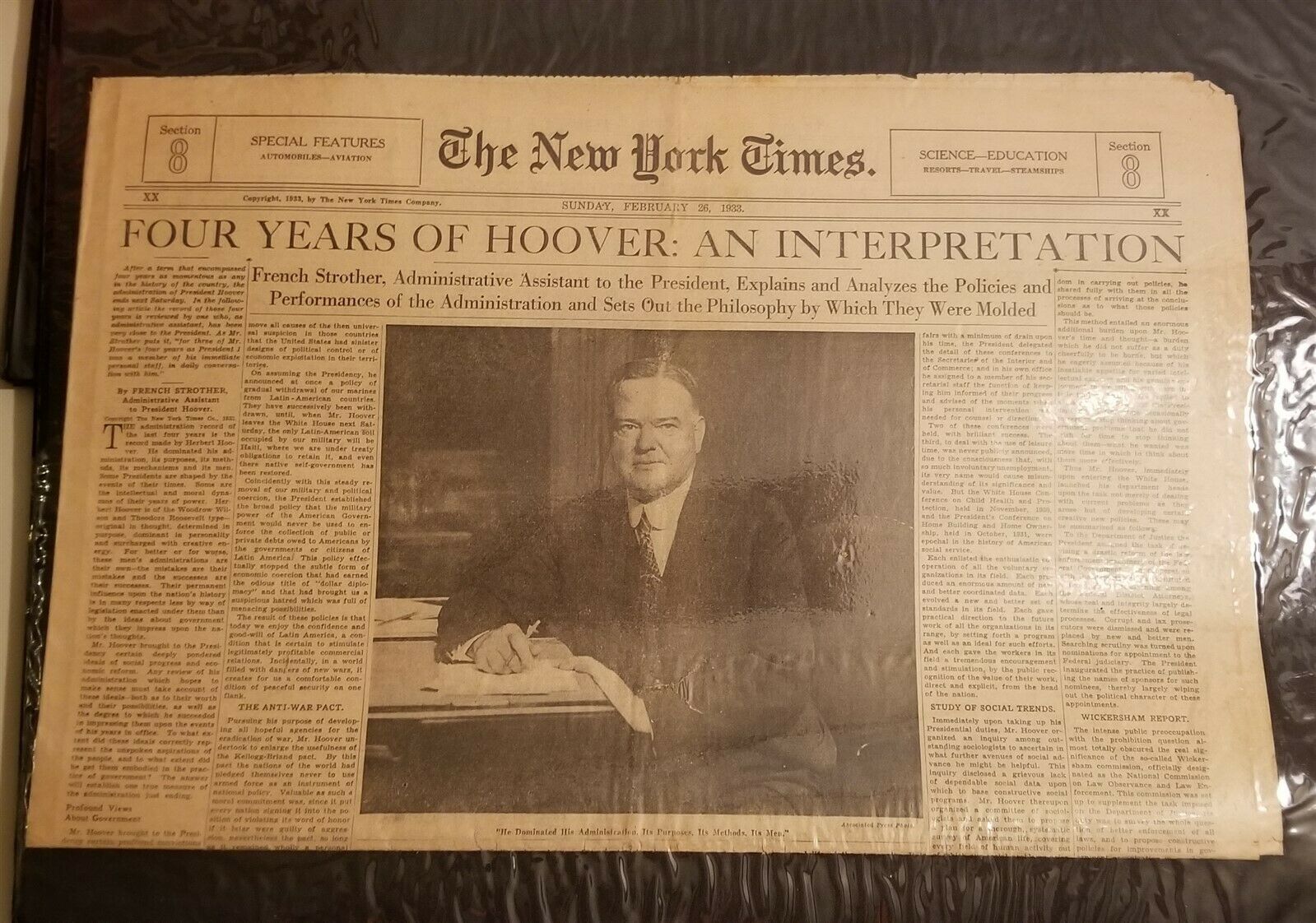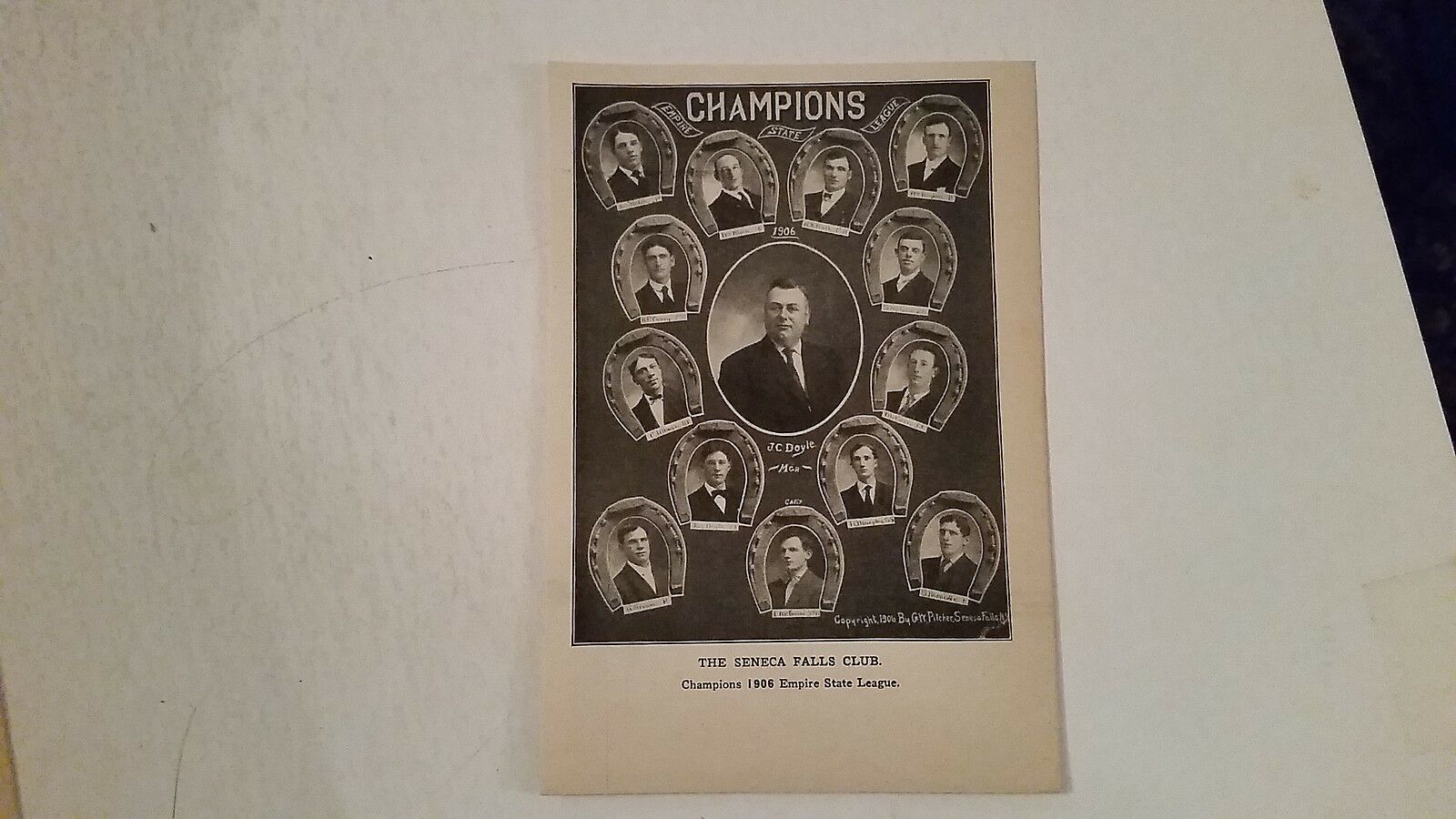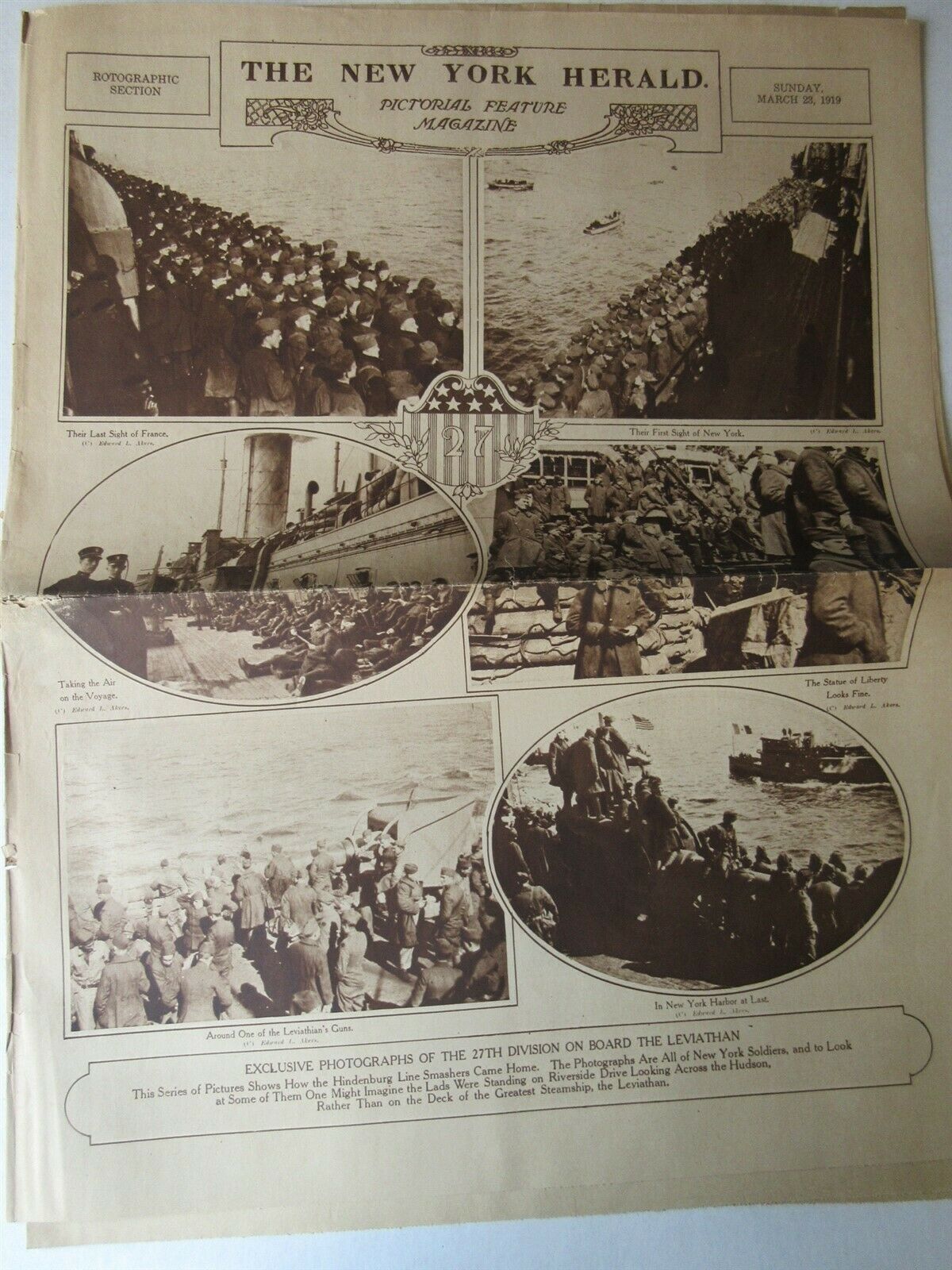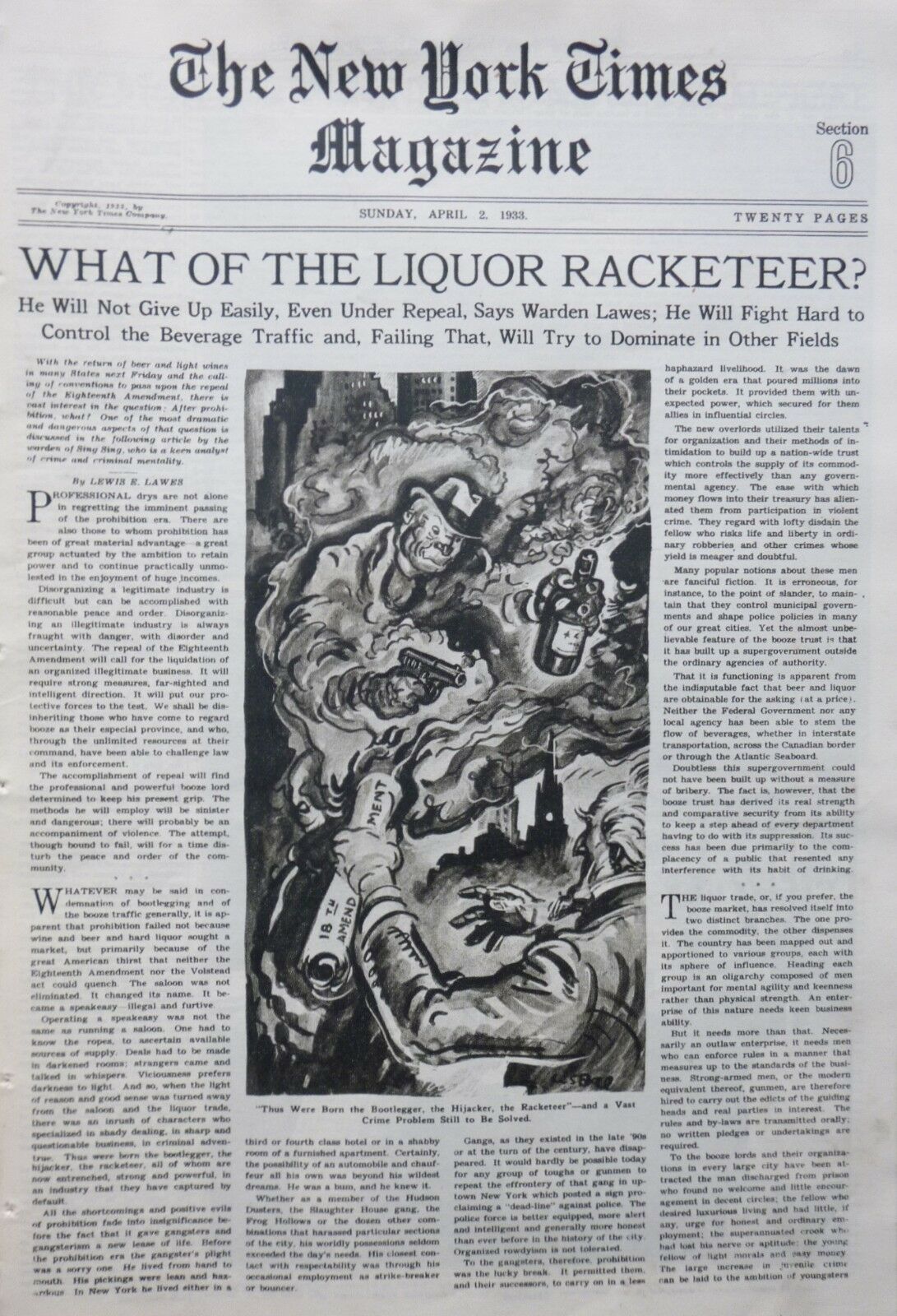-40%
Best 1919 newspaper HENRY FORD WINS 6 CENTS in his LIBEL SUIT vs CHICAGO TRIBUNE
$ 15.83
- Description
- Size Guide
Description
Best 1919 newspaper HENRY FORD WINS 6 CENTS in his LIBEL SUIT vs the CHICAGO TRIBUNE-
inv # 8A-316
Please visit our EBAY STORE for THOUSANDS of HISTORICAL NEWSPAPERS on sale or at auction.
SEE PHOTO----- COMPLETE, ORIGINAL NEWSPAPER, the
Chicago Tribune
(IL) dated Aug 15, 1919.
This newspaper contains a bold banner headline with the
BEST LOCAL COVERAGE
of the
verdict (of 6 cents !!!) in the libel suit filed by automobile magnate HENRY FORD against the Chicago Tribune.
Best display newspaper on this important libel suit by HENRY FORD against the CHICAGO TRIBUNE newspaper
Almost overnight, it seemed, industrialist Henry Ford shifted in the Chicago Tribune from national hero to scorned troublemaker, a transformation that led to an unusual libel suit with an even more unusual resolution.
Depending on one's perspective, the case was either a reaffirmation of the Tribune's stand on freedom of expression or a revealing incident that displayed Col. Robert R. McCormick at his vindictive worst.
Or, true to the complexity of life, it was both, with too many lawyers attached to each side.
Ford had been something of a darling in Tribune editorials, lauded in 1914 for pushing a "profit-sharing" scheme at Ford Motors and again praised when Ford ordered his workers to maintain "an American standard of living."
Critics of the Colonel, among them John Tebbel, author of "An American Dynasty," argue that this was a reflection of the Tribune's "essentially hypocritical" labor policy early in the century, which seemed in sync with Ford's dominant attitude toward his workers.
This was before the nation's press decided in 1916 that war with Mexico would be a good thing, a flag-waving campaign the Tribune joined quite eagerly.
But when President Woodrow Wilson called up the National Guard in the wake of border tensions between Texas and Mexico, Ford, a pacifist, shifted strongly into the "against" column, and that put him very much on the outs with McCormick and the Tribune.
There was no doubt about where the Tribune stood on the question.
"In consequence of the mobilization of the National Guard, the editors of The Tribune, Robert R. McCormick and Joseph Medill Patterson, are in the service of their respective organizations the First Illinois Cavalry and Battery C, First Battalion of Artillery," the paper announced on Page 1.
"During the period of this service they will have no connection with the editorial management of the Tribune."
The Tribune fired its first shot at Ford in the summer of 1916 in a story from Detroit that said that Ford would not hold jobs open or continue the pay of employees called into the Mexican skirmish. The Tribune had announced it would save positions and pay salaries of any of its guardsmen who were called up.
The paper followed soon afterward with an editorial under the headline: "Henry Ford is an Anarchist," a broadside that called Ford an indifferent millionaire, an ignorant idealist, an anarchistic enemy of the nation that protects him in his wealth, a man of no common sense, a punisher of the loyal military and, finally, a deluded human being.
It was the "anarchist" label that made Ford mad.
He sued for libel and sought million in damages.
The action finally played out in the summer of 1919 at Mt. Clemens, Mich., a little county seat. The jury was made up of 11 farmers and a road inspector.
To this day, it sounds more like a movie treatment than a libel trial. McCormick and his army of lawyers imported a collection of cattle ranchers from Texas, in cowboy clothing, to support the arguments about "rape" and "massacre" along the Rio Grande.
Ford and his army of attorneys countered with more than 100 Mexican witnesses.
Ford's entourage took up 25 rooms at the Colonial Hotel. The Tribune engaged a rival hotel. Both sides hired private detectives who scooted about the little town following the particulars and reporting on their behaviors.
It took 14 weeks to present the case, which produced 2 million words of testimony. "I have been talked almost to death," said Judge James G. Tucker when it was all over.
There were lots of issues, but the central one was the definition of the word "anarchist." Tebbel reports the Tribune's case was based on the conclusion that anarchism could be broadly defined.
The Tribune's key attorney, Elliott K. Stevenson, had seen Ford in court before and knew it didn't take much to rattle the industrialist, who had a short attention span and tended to ramble at the slightest encouragement.
The Ford team knew that, too, and so it took to giving Ford a lesson in U.S. history. It failed, Tebbel reports, because Ford could not pay attention. He would walk from his desk to look out the window, tinker with something or simply change the subject.
On the stand, though, Ford proved he was no fool. He gave short answers in contrast to the highfaluting rhetoric of the Tribune's attorney. Ford, as it turned out, was a lot like the farmers on the jury, a simple Middle American, maybe even a rural American, given to simple ways.
"He was virtually illiterate, obviously, and his philosophy was unashamedly out of the cracker barrel. Both these characteristics were common to any number of residents in the American hinterland," Tebbel wrote.
It took the jury 10 hours to decide, and it came back with a verdict for Ford. But there was no damage where the Tribune would have been vulnerable--in the pocketbook. Six cents was survivable in a trial that cost each side a half a million dollars.
Years later, the coincidence that Ford and McCormick shared the same birthday presented the Colonel an opportunity to apologize.
"It occurs to me on this, our birthday, to write and say I regret the editorial we published about you so many years ago. I only wonder why the idea never occurred to me before. It was a product of war psychology which is bringing out so many familiar expressions today. I am not planning to publish this myself, but you are perfectly welcome to use it in any way you wish," McCormick wrote on July 30, 1941.
The two met later in Ford's private railcar during a visit to Chicago. McCormick said the whole flap had been a mistake: "We should never have let our lawyers get us into it."
Very good condition. This listing includes the complete entire original newspaper, NOT just a clipping or a page of it. STEPHEN A. GOLDMAN HISTORICAL NEWSPAPERS stands behind all of the items that we sell with a no questions asked, money back guarantee. Every item we sell is an original newspaper printed on the date indicated at the beginning of its description. U.S. buyers pay priority mail postage which includes waterproof plastic and a heavy cardboard flat to protect your purchase from damage in the mail. International postage is quoted when we are informed as to where the package is to be sent. We do combine postage (to reduce postage costs) for multiple purchases sent in the same package.
We list thousands of rare newspapers with dates from 1570 through 2004 on Ebay each week. This is truly SIX CENTURIES OF HISTORY that YOU CAN OWN!
Stephen A. Goldman Historical Newspapers has been in the business of buying and selling historical newspapers for over 45 years. Dr. Goldman is a consultant to the Freedom Forum Newseum and a member of the American Antiquarian Society. You can buy with confidence from us, knowing that we stand behind all of our historical items with a 100% money back guarantee. Let our 45+ years of experience work for YOU ! We have hundreds of thousands of historical newspapers (and their very early precursors) for sale.
